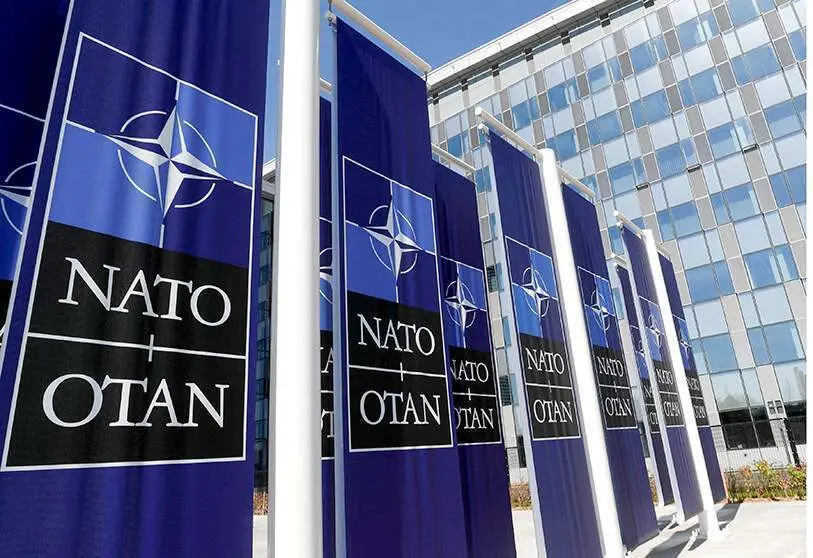The United States and Turkey accuse each other at a NATO meeting

On Tuesday, NATO's foreign ministers discussed how to prepare and modernise the Alliance for the challenges of the coming decade on the basis of a report by a group of experts that aims to increase the organisation's political dimension.
"The report highlights the importance of NATO's successes, that NATO is an indispensable alliance, but also the need to continue changing and that is exactly what we are doing," said NATO Secretary General Jens Stoltenberg at the press conference following the first day of the virtual Allied Foreign Ministers' meeting held this morning.

The new report, drafted by a group of external experts led by former German Defence Minister Thomas de Maizière and former US Assistant Secretary of State for Europe Aaron Wess Mitchell, was commissioned after French President Emmanuel Macron complained last year about conflicts between Allies, including Turkey, claiming that the alliance was "brain-dead".
The report urges the allies to "commit to a code of good conduct" and to "consider creating a centre of excellence for democratic resistance dedicated to supporting each ally". As part of this initiative, the report is based on the challenges and needs of NATO in the coming decade until 2030.
The document also focuses on strengthening cohesion among the Allies, following a period marked by the confrontations between France or Greece and Turkey, but also by the unilateral and isolationist actions of the United States during Donald Trump's presidency.

The meeting was held by means of a video conference, in which, according to several allied delegations, there was an intense clash of accusations between several member countries against Turkey. The clash, according to reporter Jacopo Barigazzi, occurred when Mike Pompeo accused Ankara of increasing tensions with its allied colleagues in the Mediterranean and of buying a Russian-made anti-aircraft system from the Kremlin.
The head of Turkish diplomacy, Mevlüt Cavusoglu, responded by accusing Pompeo of wanting to urge the European allies against Turkey, taking a pro-Greek stance in regional conflicts and refusing to sell US-made Patriot anti-aircraft weapons to Ankara.
Greek Foreign Minister Nikos Dendias, in response to Mevlüt Cavusoglu, said that if the Greek position was "maximalist", "so is international law".
Several allies supported Pompeo against Turkey, among them the French foreign minister Jean-Yves Le Drian, who denounced Ankara's behaviour and said that the cohesion within the alliance would be impossible to achieve if Turkey imitated the aggressive interventionism of Russia.

Among other things, Çavuşoglu also accused the USA of supporting the Kurdish "terrorist organisations" in Syria, while Turkey claims to fight against Daesh, and insisted that the USA and France had aggravated a conflict in Nagorno-Karabakh by supporting Armenia in a war that Azerbaijan won with Turkish military support.
At the press conference, NATO Secretary General Jens Stoltenberg dodged the question of the lively exchange between Pompeo and Çavuşoglu, noting instead that a NATO "mechanism" had helped mitigate the conflict between Athens and Ankara.
By the end of the meeting, it was clear that Turkey was virtually isolated among the 30 members of the alliance, as Jacopo Barigazzi notes. Following a request by Çavuşoglu for a NATO role in the Libyan civil war, it was rejected by the other Allies, who accused Turkey of exacerbating the conflict by sending weapons and mercenaries to support the Tripoli-based National Accord government.








